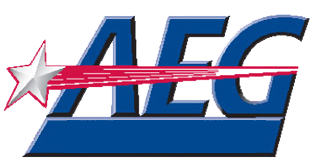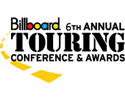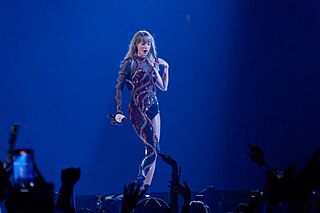Related Research Articles

Coachella is an annual music and arts festival held at the Empire Polo Club in Indio, California, in the Coachella Valley in the Colorado Desert. It was co-founded by Paul Tollett and Rick Van Santen in 1999, and is organized by Goldenvoice, a subsidiary of AEG Presents. The event features musical artists from many genres of music, including rock, pop, indie, hip hop and electronic dance music, as well as art installations and sculptures. Across the grounds, several stages continuously host live music.
Ticketmaster Entertainment, LLC is an American ticket sales and distribution company based in Beverly Hills, California with operations in many countries around the world. In 2010, it merged with Live Nation under the name Live Nation Entertainment.

The Anschutz Entertainment Group (AEG), also known as AEG Worldwide, is an American global sporting and music entertainment presenter and a subsidiary of The Anschutz Corporation. It is the world's largest owner of sports teams and sports events. Under the AEG Presents brand, it is the world's second-largest presenter of live music and entertainment events, after Live Nation. AEG Presents was founded in 2002 as AEG Live.

Ticket resale is the act of reselling tickets for admission to events. Tickets are bought from licensed sellers and then sold for a price determined by the individual or company in possession of the tickets. Tickets sold through secondary sources may be sold for less or more than their face value depending on demand, which tends to vary as the event date approaches. When the supply of tickets for a given event available through authorized ticket sellers is depleted, the event is considered "sold out", generally increasing the market value for any tickets on offer through secondary sellers. Ticket resale is common in both sporting and musical events.
Coran Capshaw is an American music industry executive, entrepreneur and founder of Red Light Management, a company that represents recording artists.
Live Nation is an American events promoter and venue operator based in Beverly Hills, California. Founded in 1996 by Robert F. X. Sillerman as SFX Entertainment, the company's business was built around consolidating concert promoters into a national entity to counter the oversized influence of ticket behemoth Ticketmaster. In 2000, the company was sold to Clear Channel Communications for $4.4 billion and operated as Clear Channel Entertainment until 2005, when it was spun off as Live Nation. In 2010, Live Nation merged with the ticketing firm Ticketmaster to form a larger conglomerate named Live Nation Entertainment.
MusicToday is an entertainment marketing company located in Crozet, Virginia, near Charlottesville. The company sells presale concert tickets through fan clubs for different artists. It was founded and run by Coran Capshaw, the manager of the Dave Matthews Band and CEO of Red Light Management. Its first fan club was Dave Matthews Band's Warehouse Fan Association.
Live Nation Entertainment, Inc. is an American multinational entertainment company that was founded in 2010 following the merger of Live Nation and Ticketmaster. It promotes, operates and manages ticket sales for live entertainment internationally. It also owns and operates entertainment venues and manages the careers of music artists.

The Billboard Live Music Awards is an annual meeting sponsored by Billboard magazine that honors the top international live entertainment industry artists and professionals. Established in 2004, it has thus been described as "part industry conference, part awards show".
Songkick is a concert discovery service owned by Warner Music Group. The service allows users to search for upcoming concert events in their area, and also track individual artists to receive notifications of upcoming shows in their area. It also provides services for artist teams to manage and promote tour dates globally.
Pollstar is a trade publication for the concert and live music industry. The publication was purchased by Oak View Group, a venue consultancy founded by Tim Leiweke and Irving Azoff, in July 2017.

Michelle L. Wahlgren is the owner and CEO of We Bring It On, Inc. Her area of specialty is implementing change and leading transformation within the business environment. She is a business consultant and motivational speaker.
A primary ticket outlet is an organization that contracts directly with venues and promoters to sell event tickets on its behalf.
LiveStyle, Inc. is a Los Angeles-based live events conglomerate founded by media entrepreneur Robert F. X. Sillerman. The company was formed in June 2012 as SFX Entertainment—the new incarnation of Sillerman's previous company of the same name, which was sold to Clear Channel Communications in 2000 and later spun-off as Live Nation in 2005.

AXS is an American ticket outlet for sports and entertainment events, founded in 2011 and owned by Anschutz Entertainment Group (AEG), the world's second largest entertainment promoter behind Live Nation Entertainment. AEG operate venues globally, as well as promote events under their AEG Presents banner, meaning these venues and promoted events typically use AXS as their primary ticket outlet.

Eventim UK is an events and ticket agent, based in London, England. The company is a wholly owned subsidiary of Europe's largest ticket retailer, CTS Eventim AG & Co. KGaA.
Randy Phillips is an American music producer, former president of Anschutz Entertainment Group, and current president and CEO of LiveStyle.
Michael Rapino is a Canadian-American business executive and the Chief Executive Officer and President of Live Nation Entertainment, Inc, which was formed in 2010 following the merger of Live Nation and Ticketmaster.
Rob Hallett is the CEO and founder of Robomagic. Hallett founded the AEG UK office in 2005 and worked for ten years as the head of international touring. Hallett has also been a festival programmer, tour manager, music publisher, record label managing director, recording studio owner, and artist manager. He appeared in the Evening Standard's Top 5 in Music in 2007, and was listed in the top 100 most powerful people in music by The Guardian in 2011.

The American ticket sales platform Ticketmaster and the parent company Live Nation Entertainment received widespread public criticism and political scrutiny over blunders in selling tickets to the United States leg of the Eras Tour (2023), the sixth concert tour by the singer-songwriter Taylor Swift, in November 2022. Media outlets described the demand for the Eras Tour's tickets as "astronomical", with 3.5 million people registering for the Ticketmaster's Verified Fan pre-sale program in the U.S. When the sale went online on November 15, 2022, the website crashed in an hour, with users logged out or in a frozen queue; however, 2.4 million tickets were sold, breaking the record for the highest single-day ticket sales ever by an artist. Ticketmaster attributed the crash to heavy site traffic—"historically unprecedented demand with millions showing up"—but users complained about poor customer service. Live Nation blamed Swift's "staggering" demand "overwhelming" them beyond capacity, and canceled the general sale due to "insufficient" inventory along with an apology.